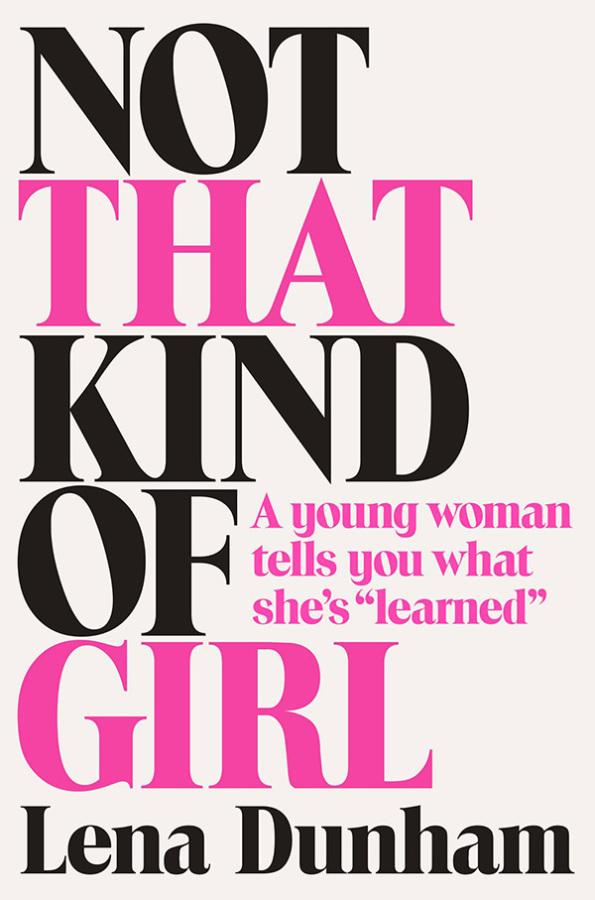Dunham maks feminist views accessible in memoir
November 6, 2014
Conversations about Lena Dunham generally devolve into one of three topics — the nudity on “Girls,” the sex on “Girls” or Dunham’s talent as a writer. “Girls,” a series on HBO written by and starring Dunham, has been well-received by critics, but has divided the world into two camps — those who love the show and those who hate it. Both sides have equal passion. Inevitably, it seems, the show has been dissected and debated ad nauseum with regard to its feminist politics, or lack thereof. These discussions almost always come back to the show’s sex and nudity, whether empowering or victimizing, and what it means for Dunham as a writer.
Dunham, for her part, is crystal clear about her “distinctly feminist upbringing.” “I understood that feminism was a worthy concept long before I was aware of being female,” Dunham writes in her new memoir, “Not That Kind of Girl.” The book is more or less what is to be expected — chatty, intimate, funny and, at times, a little gross. It is like being plugged into the subconscious of a character on “Girls,” but with a generous helping of self-awareness.
This is what sets Dunham the writer apart from Hannah, the character she plays on “Girls,” and it makes for a much more relatable experience. Whereas “Girls” has been polarizing since its first episode, “Not That Kind of Girl” is accessible and friendly. But, it hardly lacks an edge — it is unlikely anyone will make it through the book without becoming deeply uncomfortable at some point or another.
Importantly, Dunham handles it all with gentle humor more elegantly than one who has only encountered her television writing might expect. One lengthy essay, “Platonic Bed Sharing,” ends with the following advice: “Here’s who it’s okay to share a bed with: … a puppy, a kitten, one of those domesticated minigoats.”
There is poignancy here, too. The bed-sharing had become a “point of contention” with her parents — they took issue with having strangers staying in their house on a regular basis — but she was unwilling to give it up and could not see why they put up such a fuss. “Hadn’t they ever felt alone before?” writes Dunham. A friend of hers, referring to a lawyer she is dating, wonders how “someone who cares so much about social justice [could] care so little about [her] feelings.” This loneliness and heartache, and Dunham’s sometimes desperate efforts to combat it, are the heart that drives these stories.
Though she has fielded more than her fair share of complaints from both sides of the feminist debate, Dunham is clearly comfortable with where she and her work have placed herself. A passage from the introduction is worth quoting at length. “There is nothing gutsier to me than a person announcing that their story is one that deserves to be told, especially if that person is a woman,” Dunham writes. “As hard as we have worked and as far as we have come, there are still so many forces conspiring to tell women that our concerns are petty, our opinions aren’t needed, that we lack the gravitas necessary for our stories to matter.”
“I deserved to be treated like a piece of meat but also respected for my intellect,” Dunham writes a few pages later. This neatly sums up the contradictions she navigates in her essays and on her show. No matter what you think of her writing, she has demonstrated that she is an intellect to contend with.
A version of this article appeared in the Fall 2014 Arts Issue. Email Ward Pettibone at [email protected].















































































































































